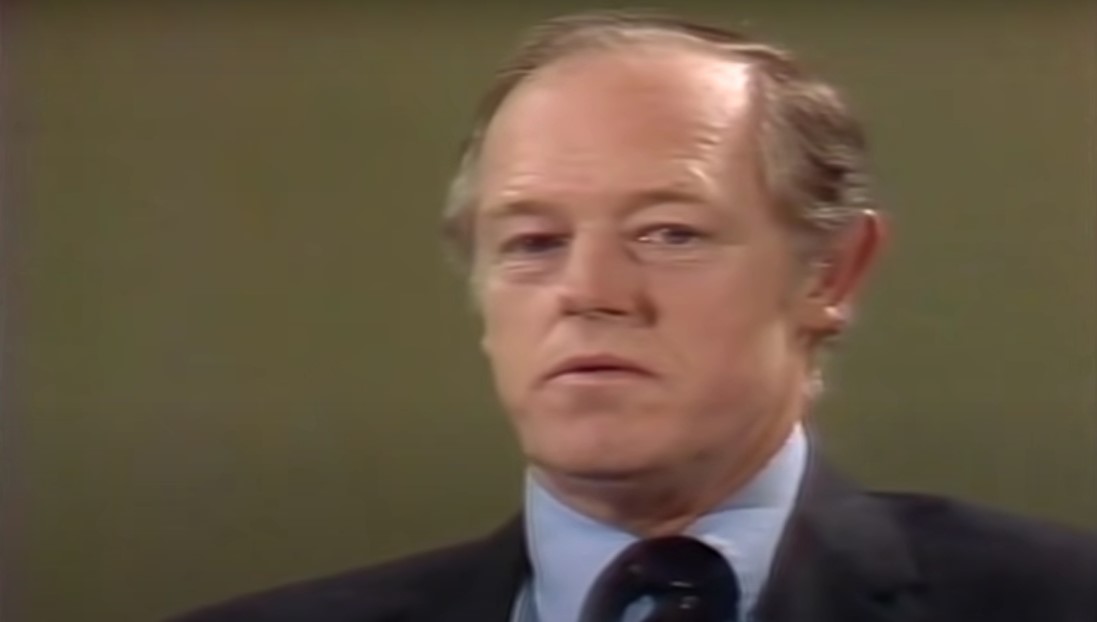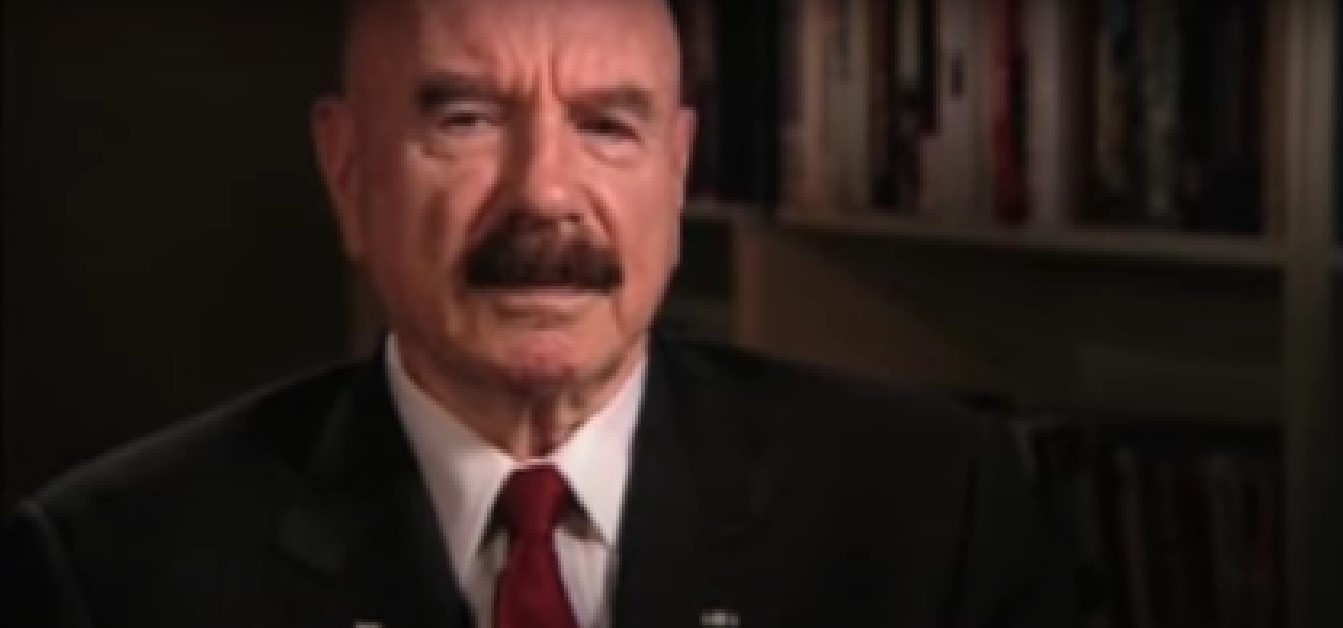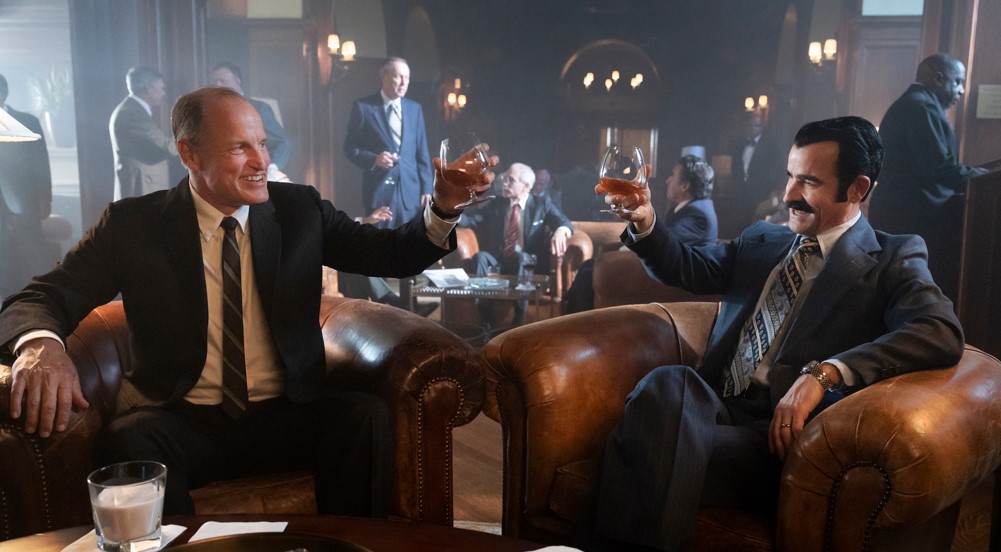Even though over five decades have passed since the Watergate Scandal, it remains a subject of fascination for the public. The revelation that E. Howard Hunt (Woody Harrelson), G. Gordon Liddy (Justin Theroux), and their team tried to break into the DNC headquarters at the Watergate Complex on behalf of the Committee for the Re-Election of the President (CRP) ultimately led to the resignation of Richard Nixon in 1974.
In hindsight, the actions of everyone involved in the scandal seem silly, and perhaps that’s the biggest reason why the incident continues to draw people’s interest. If you are wondering how Liddy and Hunt got caught, here is what you need to know. SPOILERS AHEAD.
Decisive Capture: Alert Guard and Undercover Operation
The five people who broke into the DNC headquarters on June 17, 1972, were Virgilio Gonzalez, Bernard Barker, James McCord, Eugenio Martínez, and Frank Sturgis. This was the team’s fourth attempt to break into the Watergate Complex. Liddy and Howard didn’t join their team this time, staying behind in their room in Howard Johnson’s motel. Alfred C. Baldwin III, a former FBI agent, was recruited to serve as the “Shadow Man” and occupied a different room in the hotel.

It was the security guard Frank Wills who got the inclination that something odd must be happening when he spotted tapes covering the latches of some of the doors. He called the authorities, which brought Sgt. Paul W. Leeper, Officer John B. Barrett, and Officer Carl M. Shoffler to the scene. They all wore what appeared to be hippie attire and arrived in an unmarked police vehicle. Baldwin was distracted while watching the film ‘Attack of the Puppet People’ on TV and didn’t realize what was happening until the plainclothes officers had closed in on the burglars.
After the arrest, the suspects refused to give their real names, sticking to the false identities they shared with the hotel. They even refused to call their lawyers, claiming that appropriate people already knew about this. If the suits these people had on weren’t indication enough, this cryptic statement likely assured the police officers that they weren’t ordinary burglars. The usage of false names continued until two of them said the same name. “They gave me the same alias,” Barrett recalled in an interview with The Washington Post.
He added, “I said, ‘Wait a minute, fellas, you’ve got to get your stories straight.’ And they both giggled.” It wasn’t until one of the 2nd District officers recognized the man claiming to be Edward Martin as McCord, the security chief of the CRP, that the police realized that they had stumbled onto something important. FBI agent Angelo Lano, who had investigated other burglaries at Watergate, was contacted.
When he came to the 2nd District police station, Lano found sophisticated listening devices, which the police officers thought were bombs. As this was a case of electronic surveillance and not an ordinary burglary, it fell under the FBI’s jurisdiction. As Lano learned about the backgrounds of several burglars and their past with the CIA, he started to question whether he had gotten entangled in a CIA operation.

The authorities had a big breakthrough in the case by searching the burglar’s hotel room. Among other things they found were $3,500 in sequentially numbered $100 bills, the pop-up address lister belonging to Martinez, and the black address book belonging to Barker. They also found an envelope containing a $6.36 check made out to the Lakewood Country Club in Rockville, Maryland. The check was linked to Howard’s bank account.
The Nixon administration was already aware of the debacle and initiated actions to suppress it. Their concern was not limited to what would happen if Hunt and Liddy were exposed as part of the Watergate burglary. They knew that the investigation would inevitably reveal what they did as White House Plumbers. Hunt and Liddy broke into the office of Lewis J. Fielding, psychiatrist to Daniel Ellsberg, the political activist who leaked “Pentagon Papers.” And it was just the tip of the iceberg.
The Nixon administration ordered surveillance on anti-war leaders, journalists, and government officials and was afraid that all their sins would come to light. The FBI found Baldwin, who had run away to Connecticut after the disastrous break-in. His testimony helped the authorities indict Hunt, Liddy, and the five burglars. Despite this, the Nixon administration’s attempt to contain the mushrooming catastrophe continued. It even resorted to paying the burglars hush money from the CRP fund.
Read More: Who Are the Detectives that Arrested the White House Burglars? What Happened to Them?


You must be logged in to post a comment.